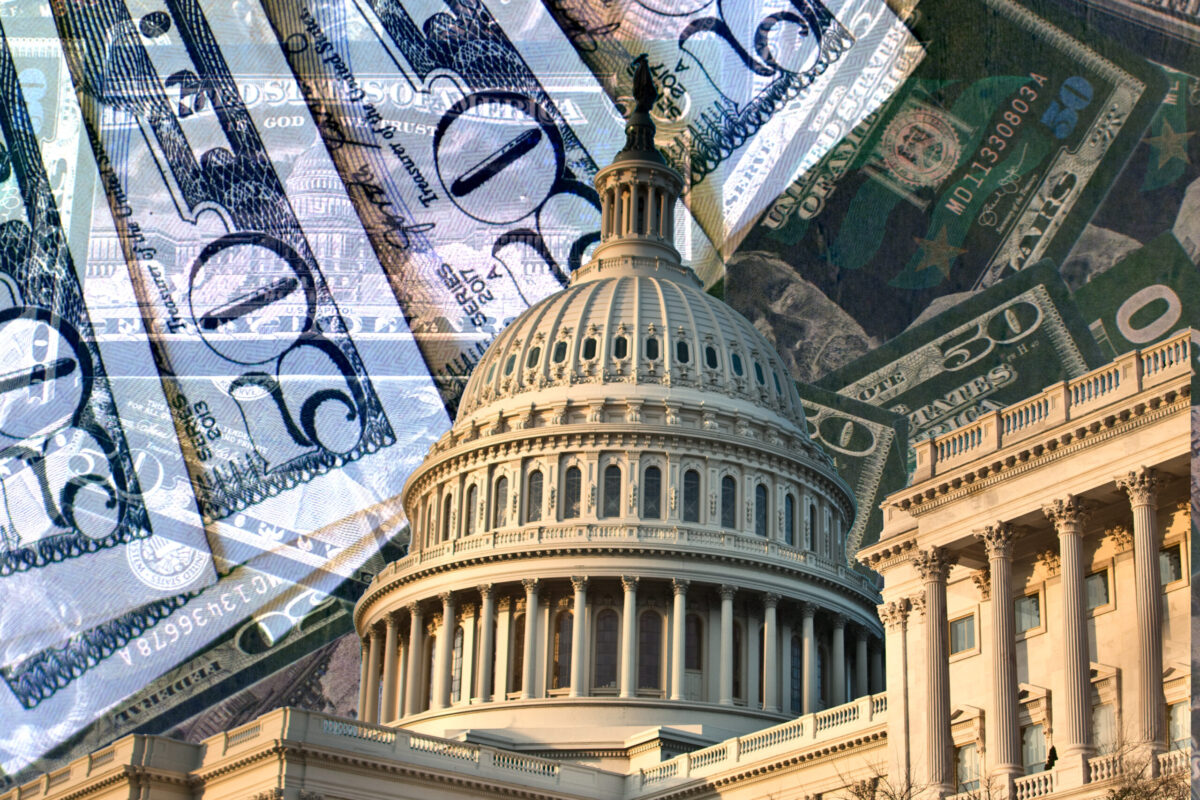The Biden administration remains in a tense standoff with congressional Republicans over the national debt ceiling. On June 1, the U.S. will default on its obligations for the first time in history if the two parties are unable to come to an agreement on lifting the debt ceiling.
Indeed, there are perilous repercussions if the Treasury Department cannot avert an unprecedented U.S. default.
If the specific deadline, known as “X-date,” is missed, the “cascading impacts of default would probably compound — a pause in federal payments would hurt the economy, which would hurt the stock market, which would in turn hurt the economy even more, and so on. The interactions between collapsing home values, rising interest rates and a destabilized global financial system are hard to calculate. Some estimates suggest that more than 8 million jobs could be wiped out. Mortgage rates might soar by more than 20 percent, according to some projections, and the economy would contract by as much as it did during the 2008 Great Recession,” according to the Washington Post.
Such consequences are terrifyingly grim, yet this is not the first, nor — unfortunately — most likely the last time in U.S. history that the nation has come dangerously close to not raising the debt ceiling.
Since 1917, when lawmakers instituted the first debt ceiling, Congress has since raised that number 78 times — 49 times under Republican presidents, and 29 times under Democratic administrations, according to NPR.
Except for the year 1835, when President Andrew Jackson became the first and last president to pay off the entirety of the national debt, the U.S. Treasury has never experienced zero debt, with the need to accrue more debt beginning in earnest at the start of the U.S. entry into World War I.
As of today, the debt currently stands at $31.4 trillion.
Below is a brief history of the debt ceiling to provide some context to the current political battle waging in the capital city.
The Good News First: Has the U.S. ever defaulted before?
No, the U.S. has never defaulted on its debt over failure to raise the debt ceiling. Congress missed payments, but they were unrelated to the debt ceiling.
Why Was the Debt Ceiling Created?
According to Kathleen Day, aJohns Hopkins University financial history professor, the national debt ceiling was created in the 20th century due to the first World War. “Congress needs to approve every time the government had to borrow money,” Day told NPR. “But then with World War I, they had to do it so often, they just said, enough of this. Let’s just give you the authority to do — to borrow money up to a certain limit. And so ever after, we’ve had these debt limits. So Treasury can borrow up to a certain amount. And then when it hits that amount, it has to go back to Congress and get authorization.”
Since entering World War II, the U.S. has raised the debt limit every year, and, according to the Bipartisan Policy Center, “By the end of the war, in June 1946, the debt limit [wa]s lowered to $275 billion as war costs dissipate[d] and the federal government beg[an] to run three years of surpluses. The federal debt limit remain[ed] unchanged at this level for eight consecutive years – the longest such period since its inception.”
With the decades-long wars in Iraq and Afghanistan, tax cuts, emergency responses such as Katrina and expanded federal spending, the U.S. has added $25 trillion in debt, writes TIME.
How Did the Founding Fathers View Debt?
The topic of debt became a classic debate that contributed to the split between Jeffersonian and Hamilton followers. Jefferson understood the utility of debt but believed there were more downside to it. Hamilton recognized such downfalls but regarded debt as necessary to grow industry, and, in turn, the economy.
“There’s good debt and bad debt,” said Day. “Debt is just debt. It’s the people that either use it wisely or don’t.”
Andrew Jackson famously became the only U.S. president to get rid of the national debt, however,his actions, “zeroing out of the US debt contributed to the Panic of 1837, one of the worst recessions in American history,” writes NPR.
How Do Elections Play Into the Debt Crisis?
Oftentimes, debt-limit crises loom when an election produces a shift in who controls Congress. The debt ceiling crises of 1995 and 2011 are no exception.
During President Bill Clinton’s first midterms in 1994, the Republicans flipped both the Senate and House Chambers.
“GOP lawmakers pledged to pass a balanced budget as part of what they named their “Contract with America,” according to U.S. News and World Report. “House Republicans sent Clinton a budget that cut spending on domestic programs, which he vetoed. This in turn led to a five-day shutdown of the federal government.”
In response, House Speaker Newt Gingrich threatened to not increase the debt limit.
After a second Clinton veto of the GOP’s budget offer and a 21-day standoff, the Republicans passed a budget offered by Clinton and also lifted the debt ceiling.
Under President Barack Obama, the 2010 midterm elections saw Republicans gain seven Senate seats — although not a majority — and win a GOP majority in the House.
Following the election, the House refused to raise the debt limit without cuts to federal spending.
An 11th-hour agreement came on July 31, 2011, only two days before the U.S. government ran out of money. But creditors were spooked, with “the credit markets downgrad[ing] the nation’s credit ranking for the first time, upping the costs of future borrowing,” per the Associated Press.
What is the role of the 14th Amendment?
The 14th Amendment states that “the validity of the public debt, authorized by law…shall not be questioned.”
According to TIME, “the controversial legal theory, which previous administrations had ruled out, builds on Section 4 of the 14th Amendment to argue that it would be unconstitutional for the U.S. to fail to make payments even if the debt limit isn’t raised, effectively challenging the debt limit on legal grounds.”
As talks between Democrats and Republicans stall, Biden stated that he was “considering” invoking the 14th Amendment on his own without an act of Congress but went on to say that he recognized the potential pitfalls in doing so. “The problem is it would have to be litigated, and without an extension it would end up in the same place.”
What Does This Mean Going Forward?
While invoking the 14th Amendment may be a constitutionally tenable option as the June 1st date looms, let’s hope for history’s sake — and the economy’s — that a deal is brokered long before that pinch point.
historynet magazines
Our 9 best-selling history titles feature in-depth storytelling and iconic imagery to engage and inform on the people, the wars, and the events that shaped America and the world.






